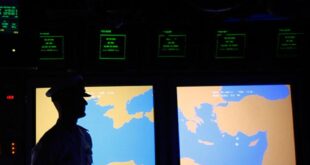11 November 2008 Belgrade – Serbia will delay its answer to the International Monetary Fund over whether it will accept the financial body’s suggestion to suspend an increase in pensions until later this week, an official said on Tuesday.
“The answer will be postponed until Thursday, November 13,†a government official told Balkan Insight.
Last week, the IMF team which is in Serbia to help local experts draft the 2009 budget, warned the government that the country’s economic growth rate will drop to 3.5 per cent in 2009 from the current 7 per cent. It also said that the budget deficit will amount to 50 billion dinars (€588.8 million).
If the proposal for calling off the planned pension increases is rejected, the IMF will insist on freezing government spending in the public sector at all levels, the source said.
The IMF team also warned the government against its plans to adjust pensions with average wages.
“We are aware of consequences of the global crisis on the economy and we want to see whether we can cover the (planned) 10 per cent (pension) increase from real budget revenues and make savings elsewhere,†the source said.
To avert the effects of the global crisis Serbia’s government announced last week that it wants to make a so-called precautionary deal with the IMF. The precautionary arrangement aims to boost international confidence in a member’s policies and the signatory countries state they do not intend to use the fund’s resources.
International media have also reported that the country has asked the IMF for 2 billion in Special Drawing Rights, a monetary instrument which is a reserve asset and the unit of account of the IMF and some other international organizations. The SDR is neither a currency, nor a claim on the IMF. It is only a potential claim on the freely usable currencies of other IMF members.
Serbia needs the SDRs to supplement its own currency reserves. The National Bank of Serbia has intervened several times in the currency market in order to boost liquidity and halt the slide of the dinar against euro.
 Eurasia Press & News
Eurasia Press & News



